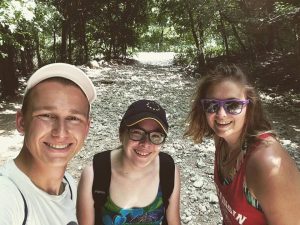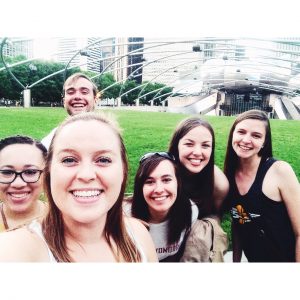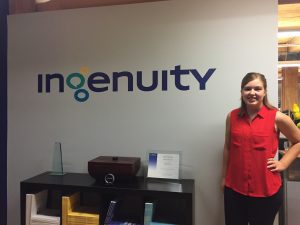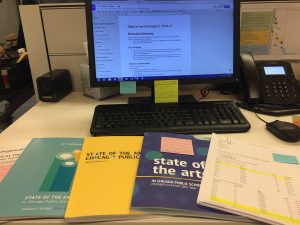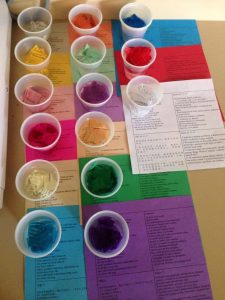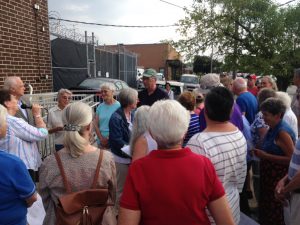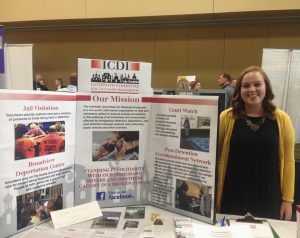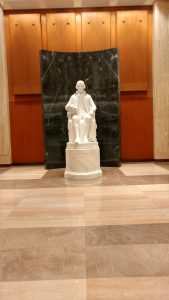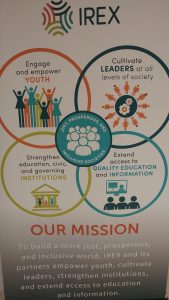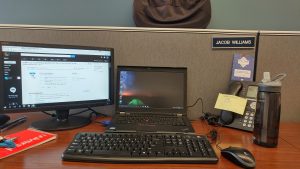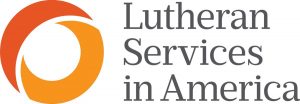“Artists have the power to see obstacles and create solutions and that is pretty beautiful,” an arts partner said to me when I met with him to talk about his partnership with Chicago Public Schools. There was a pause in the room. He continued. “Thank you for asking me to speak at the Partner Starter, it has given me the opportunity to pause and reflect on the qualities of partnership.” I smiled.
The arts partner told me that he used to be concerned with the outcome or “performance” of the students’ art pieces, but now he realizes the importance of the process for the students and that some students might not see how the arts influences them until later on in their life. You don’t always get to see the impact you have, but it is still important. Whether they consider themselves an artist or not, they are still thinking in a different way, creating in their own way, and accessing a new part of themselves.
I feel like I am accessing a new part of myself while recognizing how important reflection is in understanding my experience here. Sometimes in the constant movement of the arts non-profit world, it is easy for me to get lost in it all: that everything needs to happen now. That I don’t have time. That pausing would be a waste of time.
However, I realized in this thought process that taking a moment to pause and reflect is the key to quality work in this experience and making sure that every voice is heard in the community, in the arts sector, and in the schools.
A few weekends ago, I decided to go to the American Writers Museum that just opened in Chicago. I stumbled upon a writer’s talk that was in session with Deepak Unnikrishnan and his book Temporary People and cultural critic, Illan Stavans. The conversation circled around the diversity of voices that created and continue to create what it means to be American. I was really taken on Deepak’s perspective on language and the importance that the English language had in creating a bridge for him between all the other languages he knows, and keeping all of them alive.
I have been thinking a lot about the way language interacts with leadership and meaningful work this summer. The arts in a way is a language, a narrative, that can be shared with all, creating bridges among people, conversations, and places. Embracing the moments to pause has made me a better worker, and reflection has made me a more impactful creator, problem-solver. I have been able to make connections from what I am doing to the larger narrative that exists in my life, that what I am doing does not just end when the clock hits five, but the process of learning this summer will influence me today, tomorrow, and down the road in unexpected ways that I have yet to see.
There is an engagement in silence, in reflection, in pausing, in paying attention to the details, and I see that engagement working throughout Ingenuity, amongst each busy day. I see the way reflection and leadership are constantly intertwined in the work that each of Ingenuity staff member and it empowers me and the community.
While many things I have learned or experienced might be unique, I have realized there is a connection to community . As I share the details of my experience, and while some may be forgotten, and listeners might not completely understand, each interaction I had is important to understanding meaningful work. Each interaction with the world matters and the stories of the people around you are constantly in conversation with how we all experience the world. From the CTA driver who waited for me to get onto the platform before closing the doors so I could enter the train, to Judy who would always read Agatha Christie novels at the Art Institute on a Saturday, there is always an opportunity to make a meaningful interaction. I realized that sometimes you just need to stop for a little while, take it all in, and be open to the people around you. We have so many awesome opportunities as people of communities to build off one another, to listen to each other, to learn from others’ stories and when we become empowered by our own unique experiences as well as the people we interact with (on a small and large scale), we can find our strengths, our purpose, and calling.
. As I share the details of my experience, and while some may be forgotten, and listeners might not completely understand, each interaction I had is important to understanding meaningful work. Each interaction with the world matters and the stories of the people around you are constantly in conversation with how we all experience the world. From the CTA driver who waited for me to get onto the platform before closing the doors so I could enter the train, to Judy who would always read Agatha Christie novels at the Art Institute on a Saturday, there is always an opportunity to make a meaningful interaction. I realized that sometimes you just need to stop for a little while, take it all in, and be open to the people around you. We have so many awesome opportunities as people of communities to build off one another, to listen to each other, to learn from others’ stories and when we become empowered by our own unique experiences as well as the people we interact with (on a small and large scale), we can find our strengths, our purpose, and calling.

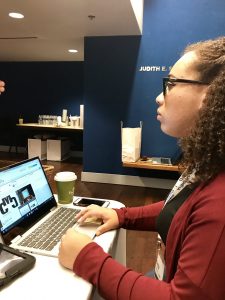

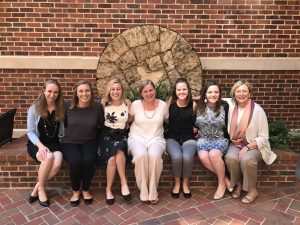
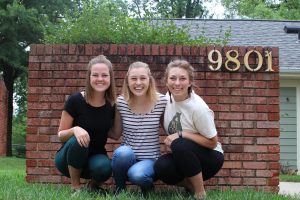
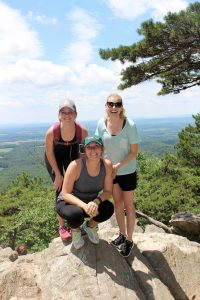
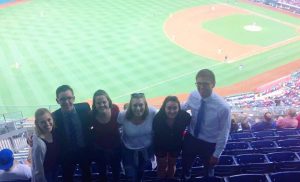

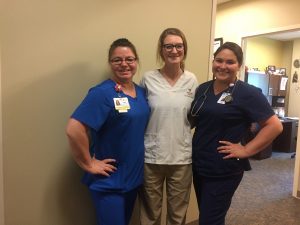

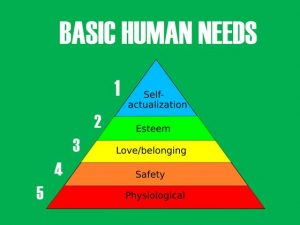



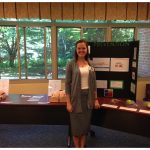

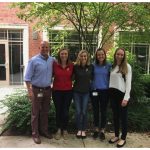





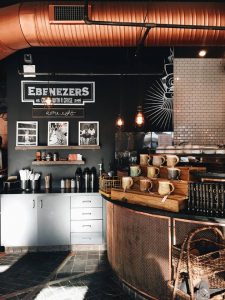



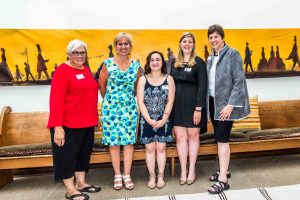

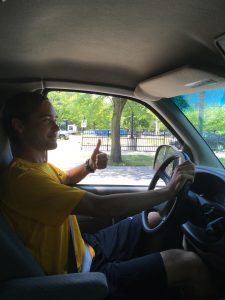
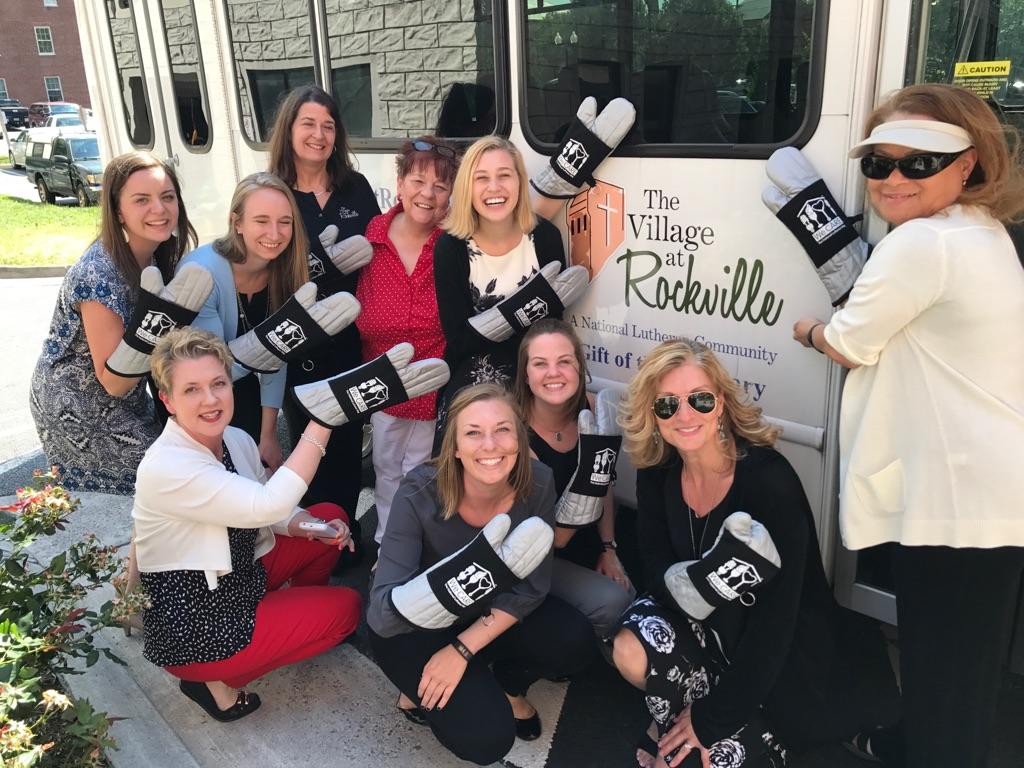
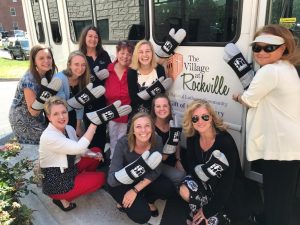

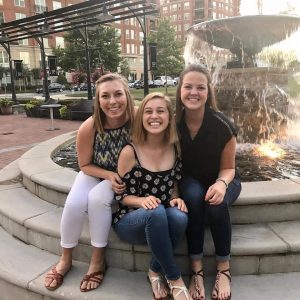
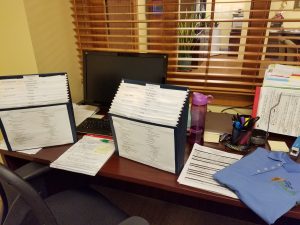
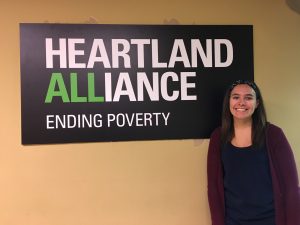
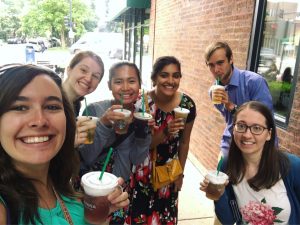
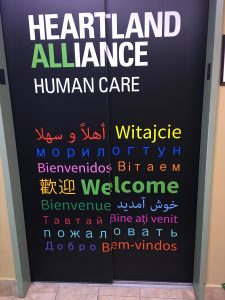 All of this will go with me even after I leave the office for the last time on Friday. My CAPS experience is occurring in the middle of my greatest life transition yet: In May, I graduated college, and said goodbye to Valpo as well as my friends, mentors, commitments and activities – really my whole way of life – there. In two weeks I leave the 60-mile radius of the Midwest I’ve lived in my entire life move to Denver, Colorado, a place where I’ve only spent about 36 hours total and know virtually no one. As of last week, my family officially completed their relocation to Charlotte, North Carolina, where my dad was transferred for work, so I also said goodbye to my childhood home, my hometown, and my old friends and neighbors. While navigating this huge life change in the midst of an experience where I must reflect on my calling and purpose in society, I have had another question thrown into the mix: who am I? When all of your roots are pulled from the ground – all of the places and activities that up until this point in your life made you who you are – what is your identity? I wish I had the answer for you. I do, however, have one valuable insight I want to share:
All of this will go with me even after I leave the office for the last time on Friday. My CAPS experience is occurring in the middle of my greatest life transition yet: In May, I graduated college, and said goodbye to Valpo as well as my friends, mentors, commitments and activities – really my whole way of life – there. In two weeks I leave the 60-mile radius of the Midwest I’ve lived in my entire life move to Denver, Colorado, a place where I’ve only spent about 36 hours total and know virtually no one. As of last week, my family officially completed their relocation to Charlotte, North Carolina, where my dad was transferred for work, so I also said goodbye to my childhood home, my hometown, and my old friends and neighbors. While navigating this huge life change in the midst of an experience where I must reflect on my calling and purpose in society, I have had another question thrown into the mix: who am I? When all of your roots are pulled from the ground – all of the places and activities that up until this point in your life made you who you are – what is your identity? I wish I had the answer for you. I do, however, have one valuable insight I want to share:
